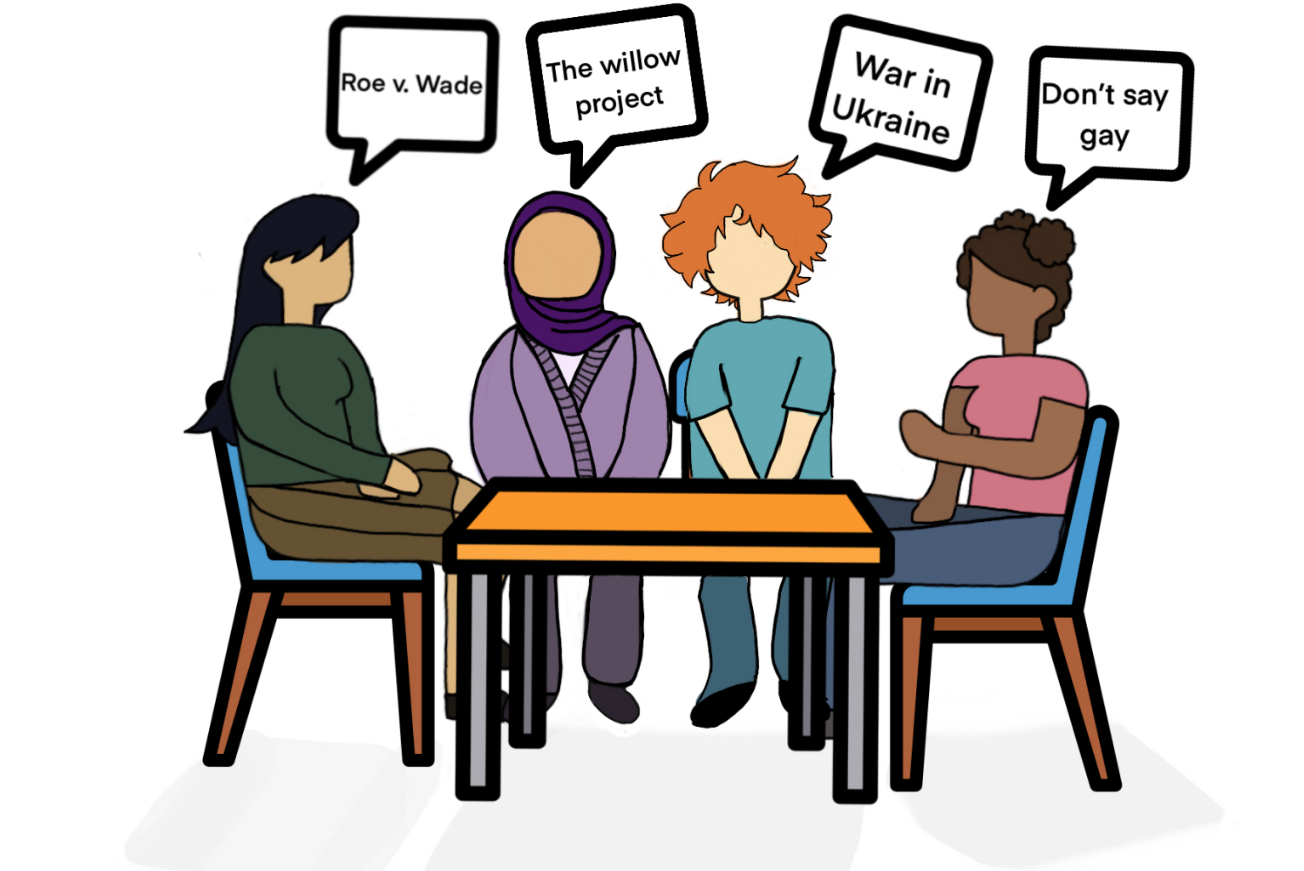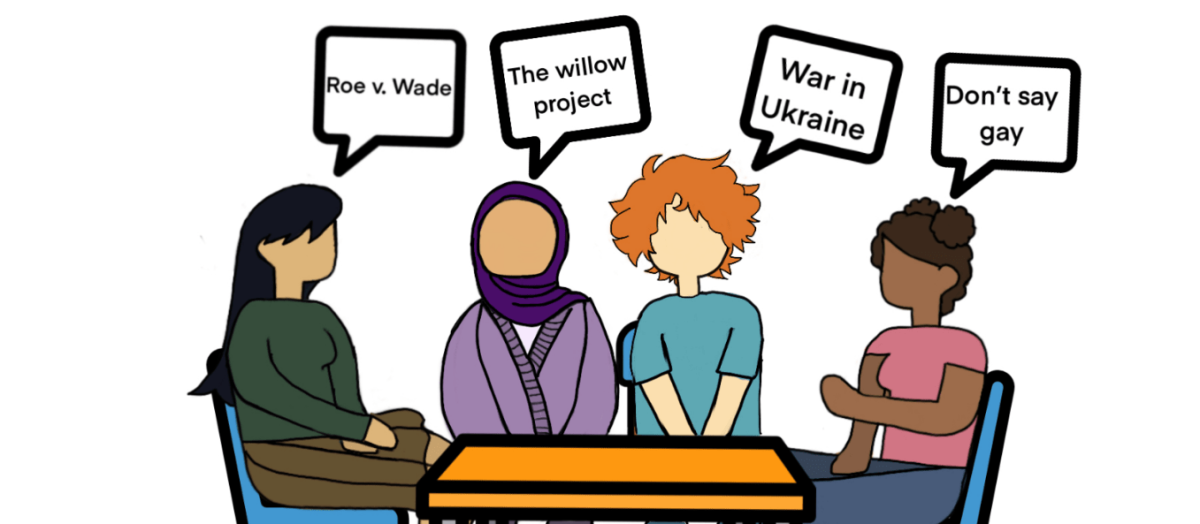
Before modern technology, teens and young adults would get their news by reading the daily newspaper, listening to the radio, or watching news broadcasts. However, with the rise of social media, fewer and fewer teens are consuming their news through these sources. While social media can serve as a valuable resource, many believe that being aware of current events is an important step towards becoming a more understanding, tolerant, and educated society, and thus it warrants more involvement in the education at San Marin.
Junior Noela DeFrenza is the president of the California Youth Climate Leaders (CYCL) organization at San Marin and is passionate about building a better future and helping to address issues currently facing society. She raises the argument that NUSD should take some responsibility for their students’ knowledge on current issues as stated in their graduate profile.
“Even one of our NUSD graduate profile standards is ‘cultural competence’,” De Frenza said. “A lot of people don’t even know what’s going on in other countries right now which creates a lot of ignorance. Ignorance is a terrible and avoidable thing and results in unintended or intended biases. It would probably help with the general atmosphere of the classroom if people where more aware of what’s going on and were trying to be more mindful.”
Although most of the San Marin community believe that learning about current events at school would be a good resource, a few people concede that this may pose an issue for the school’s political neutrality. Certain topics in the news are politically charged and may cause controversy or conflict in the classroom if taught incorrectly.
“[Teaching current events] would also come with a potential bias on the teacher’s end,” junior Oliver McCall said. “It would be best if there was a way for everyone to teach the same thing and I think that, as long as all sides are represented in a fair way and they try to eliminate bias as much as possible, it could work well.”
Principal Jennifer Larson agrees with McCall that current events shouldn’t be taught in a political way. She believes that teaching about current events does not interfere with political neutrality at all, as long as they are taught in a way that exposes students to all viewpoints. Like others, Larson agrees that teaching students about finding credible news sources is an important first step.
“As an educator or staff member, it’s important for us to ensure that you have the opportunity to explore all of the different opinions and stances and perspectives,” Larson said. “Our own personal beliefs should never get in the way of your learning. I think it is important to connect what you learn in class to the world around you, and there are ways to go about that that aren’t political.”
“It would probably help with the general atmosphere of the classroom if people were more aware of what’s going on and were trying to be more mindful.”
– Noela de Frenza
Junior
Various students said that they discuss current events in AP English, science, and history classes the most, though many would like to see further discussion in more of their classes.
“I would love it if we would learn about [current events] in every class because it’s really something that we all kinda think about and relate to,” senior Kash Connors said. “Current events are just super interesting and applicable for everyone. It is a lot more engaging and fun when you sit down with your class and talk about what the president just did as opposed to things that people can’t really relate to or empathize with.”
Junior Zack Brownstone added that learning about current events in class can also help with students’ understanding of the topics they are learning about in the standard curriculum.
“I think that current events should be discussed in the class they are related to,” Brownstone said. “Tying it into what we are already learning would help us be aware and also help us understand and connect to the subject matter more.”
Reading articles, doing small research presentations, watching news clips in class, having full class discussions every so often, or even introducing a new current affairs class altogether were ideas that students suggested for how to integrate current events education into San Marin’s curriculum.
“Some schools have current affairs classes, but we don’t offer anything like that,” Connors said. “I think it’s really interesting that a few months ago we had one of the biggest court rulings for the conservative in court for the overturning of Roe v. Wade, and we did not talk about it. It was completely under the table. Maybe your friend groups would talk about it if they knew anything about it, but otherwise it was one conversation in Gov. where our teacher basically just said that it was overturned and that was it. That’s kinda crazy to me. Why didn’t we learn about that?”






































